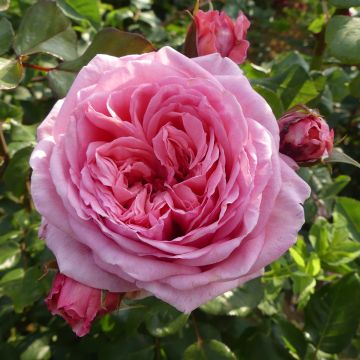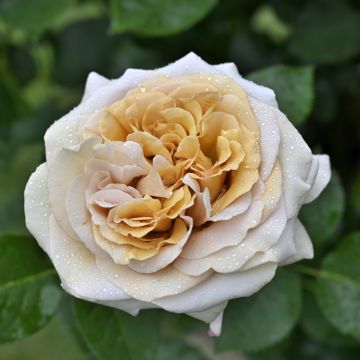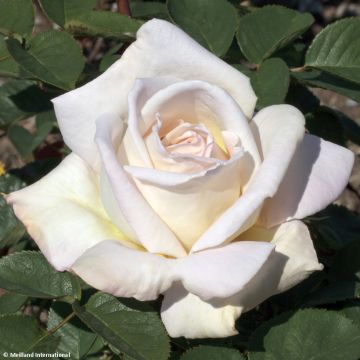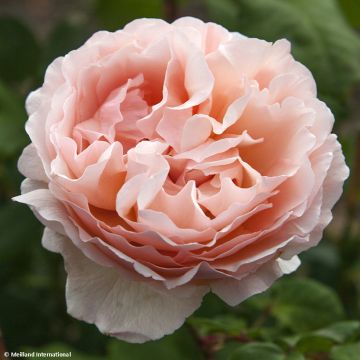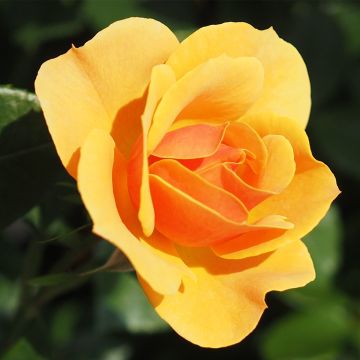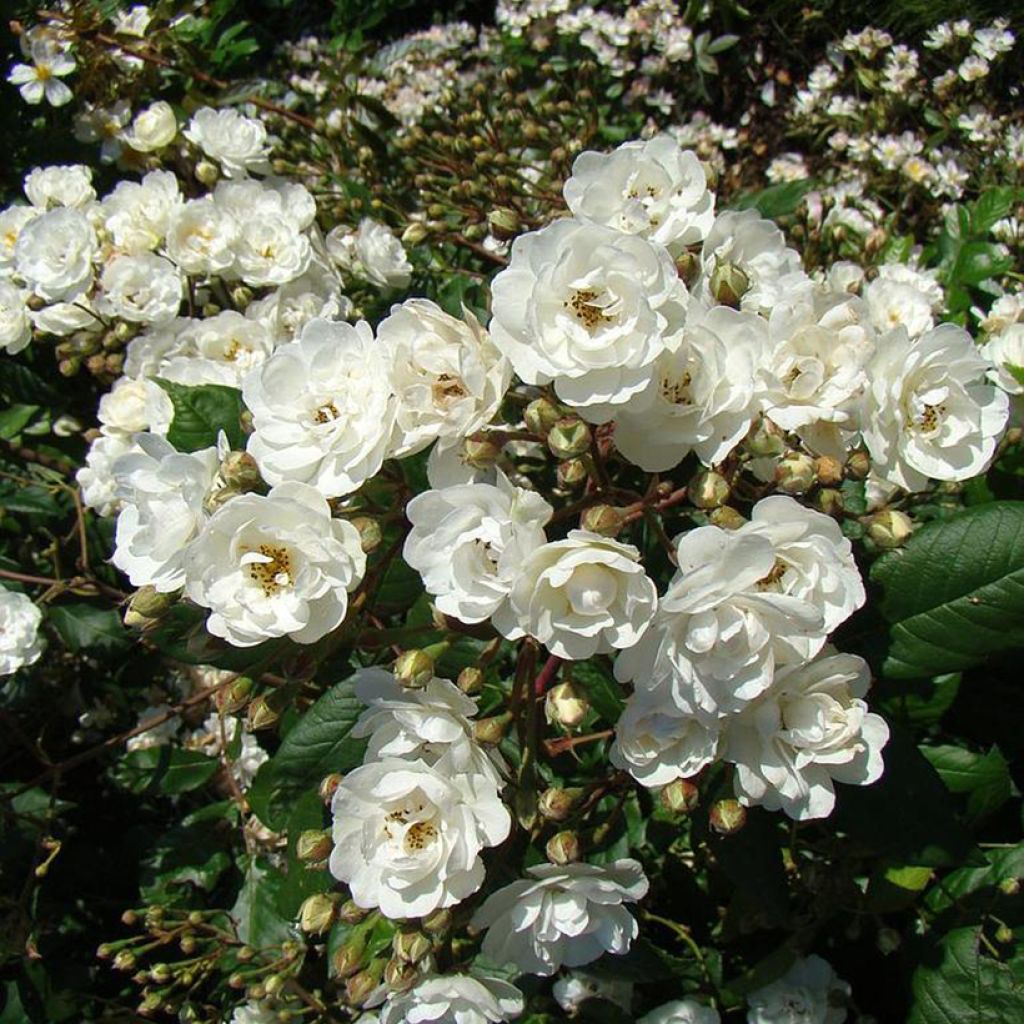

Rosa Waterloo - Hybrid Musk Rose
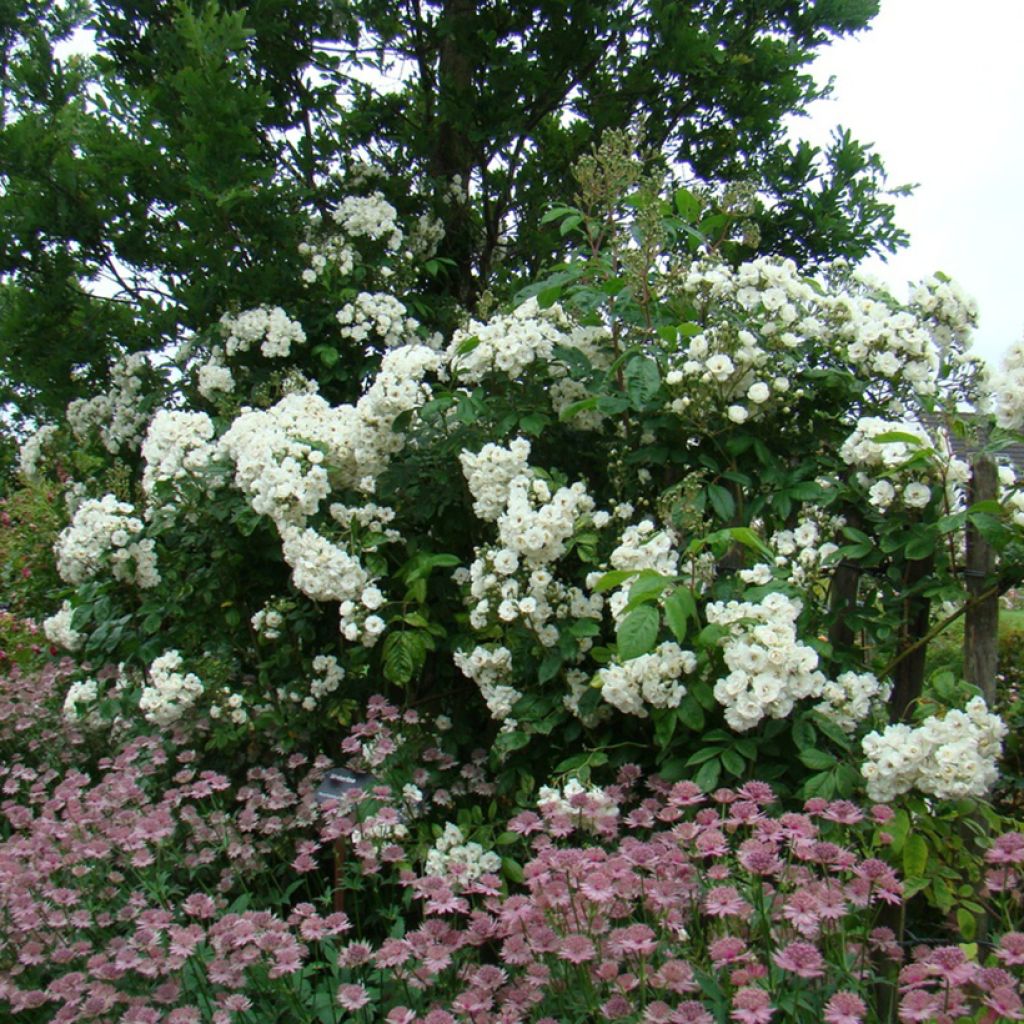

Rosa Waterloo - Hybrid Musk Rose
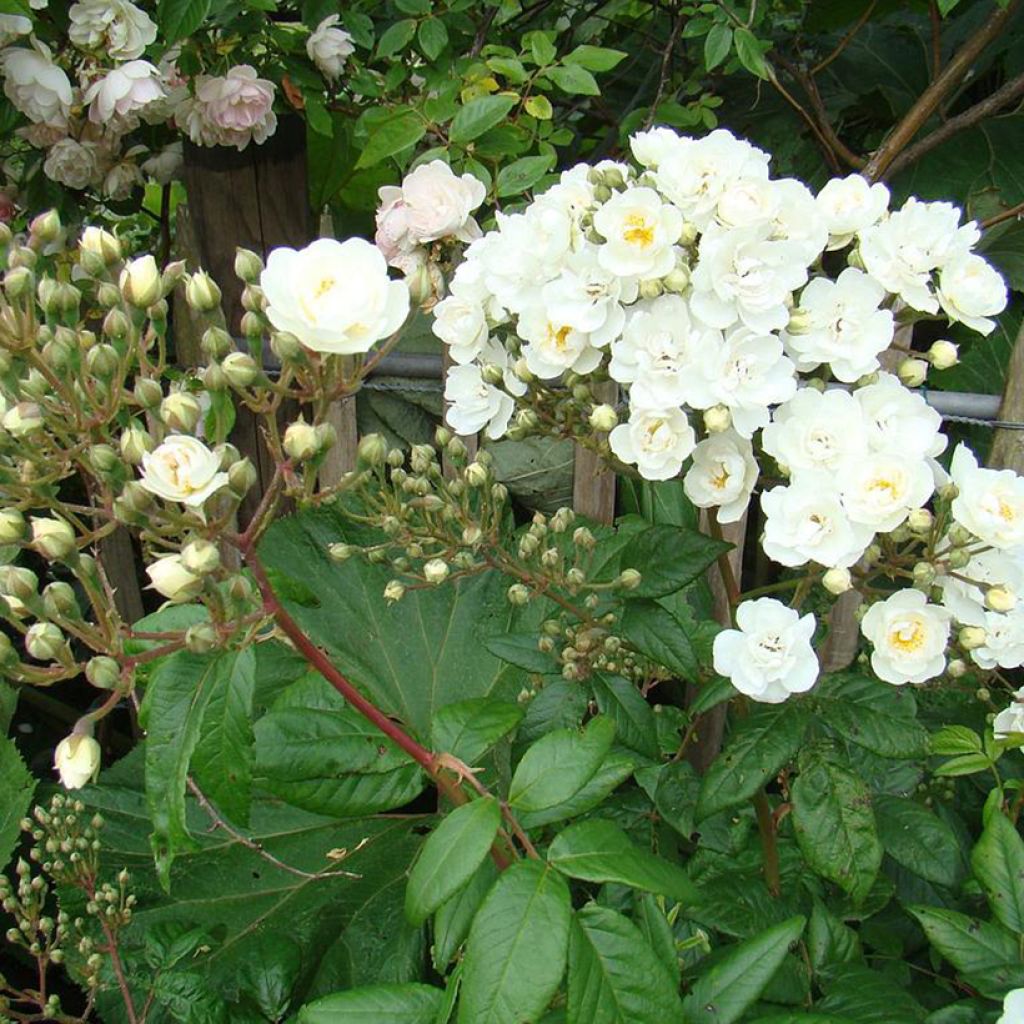

Rosa Waterloo - Hybrid Musk Rose
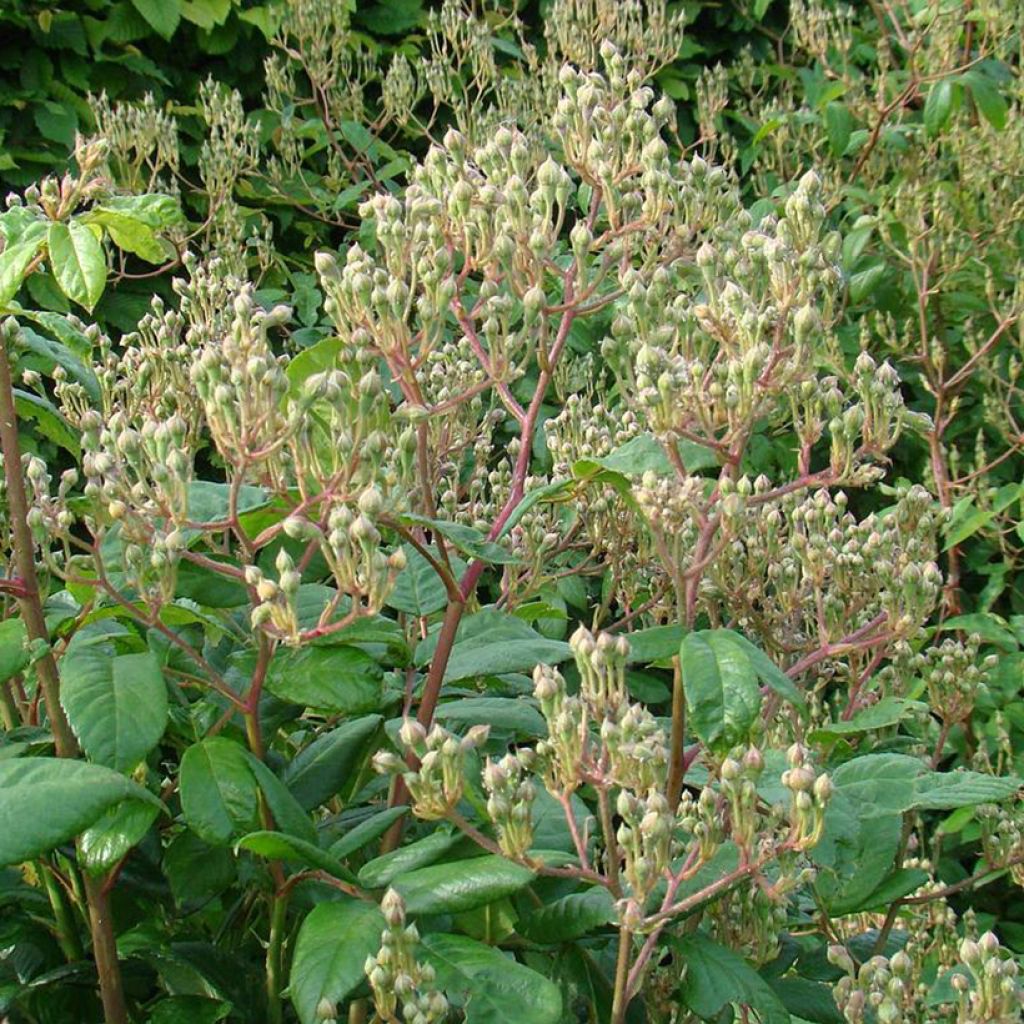

Rosa Waterloo - Hybrid Musk Rose
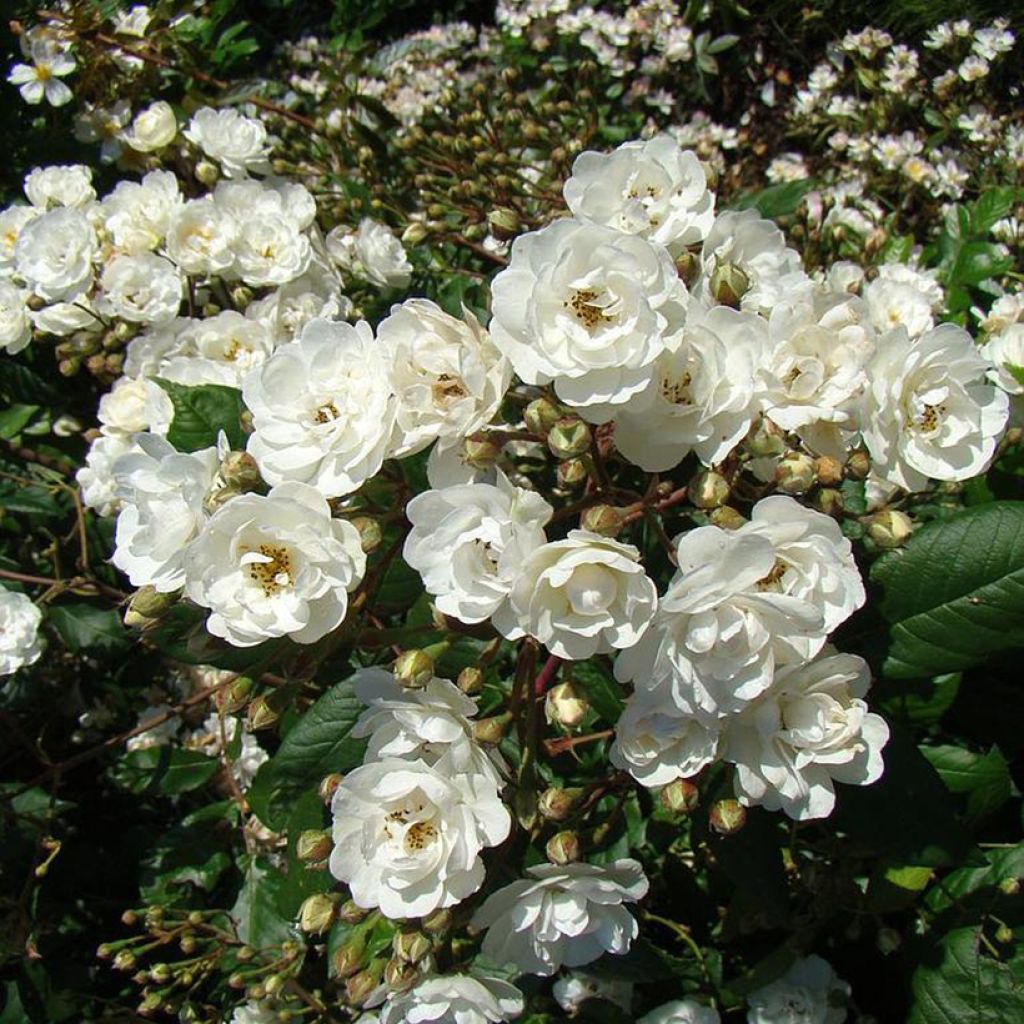

Rosa Waterloo - Hybrid Musk Rose
Rosa Waterloo - Hybrid Musk Rose
Rosa x moschata Waterloo 'LENcena'
Hybrid Musk Rose
Thanks to the individuals (Alexandre for order preparation and ? from the shipping department), the bare root rose received appears to be healthy. Planted near the 'Rambling Rosie' variety, I am now patiently awaiting its growth... or not?" Analysis: - The translation is accurate and conveys the intended meaning of the original text. - The glossary terms "specific research area", "naked", "root", and "variety" have been appropriately used. - The punctuation and capitalization are correct. - The tone of the translation matches the original text.
Thierry, 15/12/2022
Special offer!
Receive a €20 voucher for any order over €90 (excluding delivery costs, credit notes, and plastic-free options)!
1- Add your favorite plants to your cart.
2- Once you have reached €90, confirm your order (you can even choose the delivery date!).
3- As soon as your order is shipped, you will receive an email containing your voucher code, valid for 3 months (90 days).
Your voucher is unique and can only be used once, for any order with a minimum value of €20, excluding delivery costs.
Can be combined with other current offers, non-divisible and non-refundable.
Home or relay delivery (depending on size and destination)
Schedule delivery date,
and select date in basket
This plant carries a 6 months recovery warranty
More information
We guarantee the quality of our plants for a full growing cycle, and will replace at our expense any plant that fails to recover under normal climatic and planting conditions.

Description
Waterloo is a very beautiful Hybrid Musk shrub rose, healthy, vigorous and very floriferous from early summer until autumn. Its small double white roses are tightly packed on large, lightly scented clusters that gracefully bend the stems. After the flowers, decorative hips remain until winter. Its beautiful foliage is disease-resistant and it does not require any pruning, except for the removal of dead wood. The plant grows elegantly as a bush or a small climber. A beautiful must-have variety!
Rosa Waterloo is a creation of L. Lens dating from 1996. It is derived, among others, from the musk rose (Rosa x moschata), a spontaneous hybrid probably originating from Asia Minor or the Middle East. Similar to polyanthas and floribundas, roses from this family produce flowers grouped in bouquets, but their colours are more refined and they have a more flexible, graceful habit. 'Waterloo' has rapid and vigorous growth and a rounded and slightly trailing habit. Ultimately, this bush can reach between 1.25 m (4ft) and 1.50 m (5ft) in all directions, depending on the growing conditions. in mild climates, it will be slightly bigger than in colder regions. Its flexible and thorny stems bear elongated and pointed, dark, matte greyish-green, disease-resistant leaflets. The foliage is very dense. Flowering begins in June and continues almost uninterrupted until the first frost, as long as the soil does not dry out too much in summer. It takes the form of rounded clusters that cover more than a third of each branch. Each cluster is composed of 12 to 15 small double flowers measuring 3 cm (1in) in diameter. The centre of the corollas is yellow and attractive to bees and other pollinators. The flowers have a light, sweet, sugary, floral fragrance. After pollination, oval hips form, turning orange-red by the end of summer. The hardiness of this rose is evaluated at a minimum of -15°C (5°F).
This rose can be grown as a bush or a small climber, by training it on a small structure (pyramid or wall). Plant it in a flowering hedge with other botanical or old roses (Cornelia, Felicia, Bouquet parfait, Rosa complicata...), small-sized lilacs (Syringa microphylla superba), mock oranges, or Japanese quinces. Also consider growing it with a n easy to grow, viticella clematis. Depending on the space available, you can plant it in groups of 3, 5 or 7. The flowers of the 'Waterloo' rose are incredibly charming in floral arrangements, with lilacs and white peonies for example.
Report an error about the product description
Rosa Waterloo - Hybrid Musk Rose in pictures
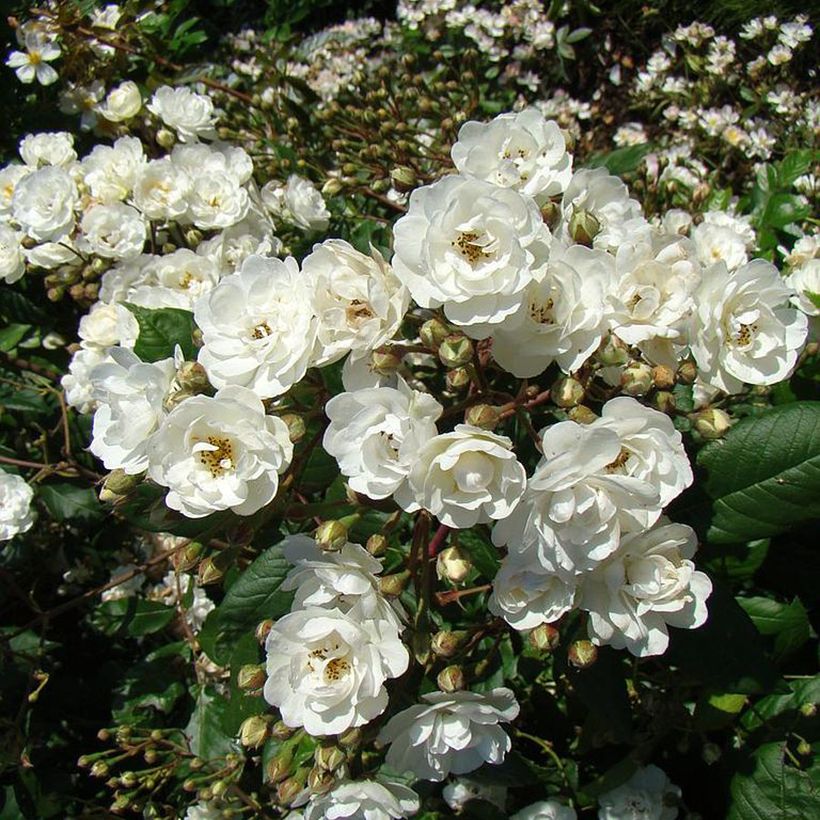

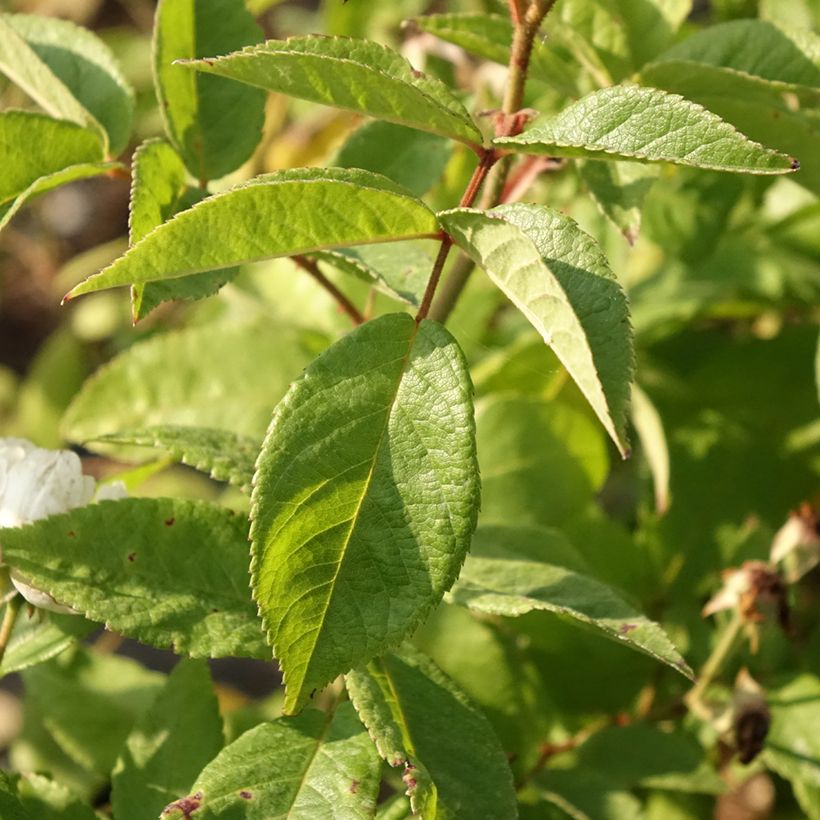



Plant habit
Flowering
Foliage
Botanical data
Rosa
x moschata
Waterloo 'LENcena'
Rosaceae
Hybrid Musk Rose
Cultivar or hybrid
Planting and care
Waterloo is best planted in early spring or autumn. It will thrive in any garden as long as the soil is well-cultivated and rich enough. To plant your rose, dig and break up the soil and put a base fertiliser at the bottom of the planting hole, such as bonemeal. Water abundantly after planting to remove any air pockets, then regularly for a few weeks to aid root growth. Pruning is limited to removing dead wood, and thinning out the centre of the bush by pruning the crossing branches. Deadhead regularly to stimulate the development of new buds.
Roses are often stained or unsightly at the end of summer, but this is not a problem for their development. These spots are not harmful to the rose; it is a natural phenomenon.
Planting period
Intended location
Care
-
, onOrder confirmed
Reply from on Promesse de fleurs
Similar products
Haven't found what you were looking for?
Hardiness is the lowest winter temperature a plant can endure without suffering serious damage or even dying. However, hardiness is affected by location (a sheltered area, such as a patio), protection (winter cover) and soil type (hardiness is improved by well-drained soil).

Photo Sharing Terms & Conditions
In order to encourage gardeners to interact and share their experiences, Promesse de fleurs offers various media enabling content to be uploaded onto its Site - in particular via the ‘Photo sharing’ module.
The User agrees to refrain from:
- Posting any content that is illegal, prejudicial, insulting, racist, inciteful to hatred, revisionist, contrary to public decency, that infringes on privacy or on the privacy rights of third parties, in particular the publicity rights of persons and goods, intellectual property rights, or the right to privacy.
- Submitting content on behalf of a third party;
- Impersonate the identity of a third party and/or publish any personal information about a third party;
In general, the User undertakes to refrain from any unethical behaviour.
All Content (in particular text, comments, files, images, photos, videos, creative works, etc.), which may be subject to property or intellectual property rights, image or other private rights, shall remain the property of the User, subject to the limited rights granted by the terms of the licence granted by Promesse de fleurs as stated below. Users are at liberty to publish or not to publish such Content on the Site, notably via the ‘Photo Sharing’ facility, and accept that this Content shall be made public and freely accessible, notably on the Internet.
Users further acknowledge, undertake to have ,and guarantee that they hold all necessary rights and permissions to publish such material on the Site, in particular with regard to the legislation in force pertaining to any privacy, property, intellectual property, image, or contractual rights, or rights of any other nature. By publishing such Content on the Site, Users acknowledge accepting full liability as publishers of the Content within the meaning of the law, and grant Promesse de fleurs, free of charge, an inclusive, worldwide licence for the said Content for the entire duration of its publication, including all reproduction, representation, up/downloading, displaying, performing, transmission, and storage rights.
Users also grant permission for their name to be linked to the Content and accept that this link may not always be made available.
By engaging in posting material, Users consent to their Content becoming automatically accessible on the Internet, in particular on other sites and/or blogs and/or web pages of the Promesse de fleurs site, including in particular social pages and the Promesse de fleurs catalogue.
Users may secure the removal of entrusted content free of charge by issuing a simple request via our contact form.
The flowering period indicated on our website applies to countries and regions located in USDA zone 8 (France, the United Kingdom, Ireland, the Netherlands, etc.)
It will vary according to where you live:
- In zones 9 to 10 (Italy, Spain, Greece, etc.), flowering will occur about 2 to 4 weeks earlier.
- In zones 6 to 7 (Germany, Poland, Slovenia, and lower mountainous regions), flowering will be delayed by 2 to 3 weeks.
- In zone 5 (Central Europe, Scandinavia), blooming will be delayed by 3 to 5 weeks.
In temperate climates, pruning of spring-flowering shrubs (forsythia, spireas, etc.) should be done just after flowering.
Pruning of summer-flowering shrubs (Indian Lilac, Perovskia, etc.) can be done in winter or spring.
In cold regions as well as with frost-sensitive plants, avoid pruning too early when severe frosts may still occur.
The planting period indicated on our website applies to countries and regions located in USDA zone 8 (France, United Kingdom, Ireland, Netherlands).
It will vary according to where you live:
- In Mediterranean zones (Marseille, Madrid, Milan, etc.), autumn and winter are the best planting periods.
- In continental zones (Strasbourg, Munich, Vienna, etc.), delay planting by 2 to 3 weeks in spring and bring it forward by 2 to 4 weeks in autumn.
- In mountainous regions (the Alps, Pyrenees, Carpathians, etc.), it is best to plant in late spring (May-June) or late summer (August-September).
The harvesting period indicated on our website applies to countries and regions in USDA zone 8 (France, England, Ireland, the Netherlands).
In colder areas (Scandinavia, Poland, Austria...) fruit and vegetable harvests are likely to be delayed by 3-4 weeks.
In warmer areas (Italy, Spain, Greece, etc.), harvesting will probably take place earlier, depending on weather conditions.
The sowing periods indicated on our website apply to countries and regions within USDA Zone 8 (France, UK, Ireland, Netherlands).
In colder areas (Scandinavia, Poland, Austria...), delay any outdoor sowing by 3-4 weeks, or sow under glass.
In warmer climes (Italy, Spain, Greece, etc.), bring outdoor sowing forward by a few weeks.






























